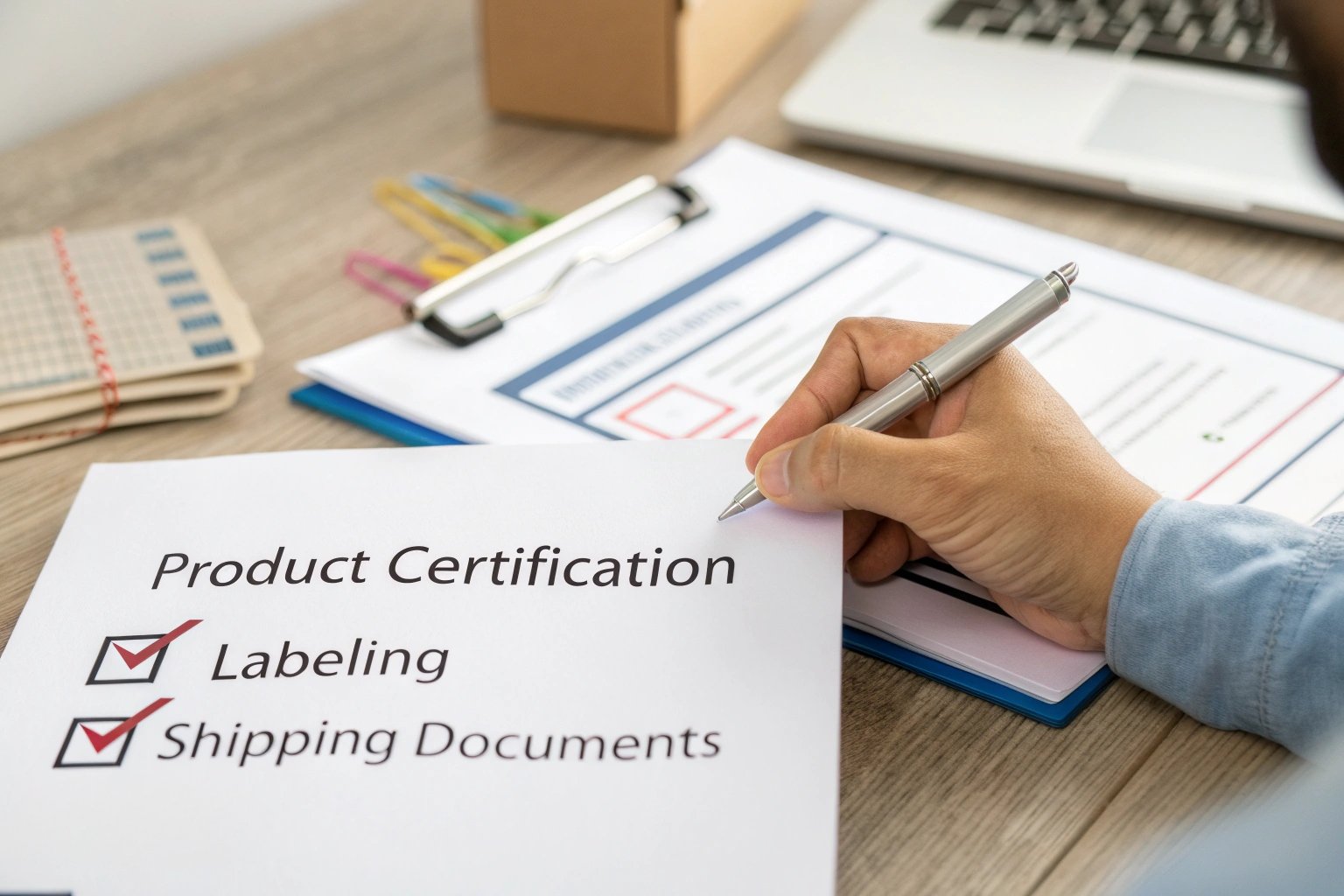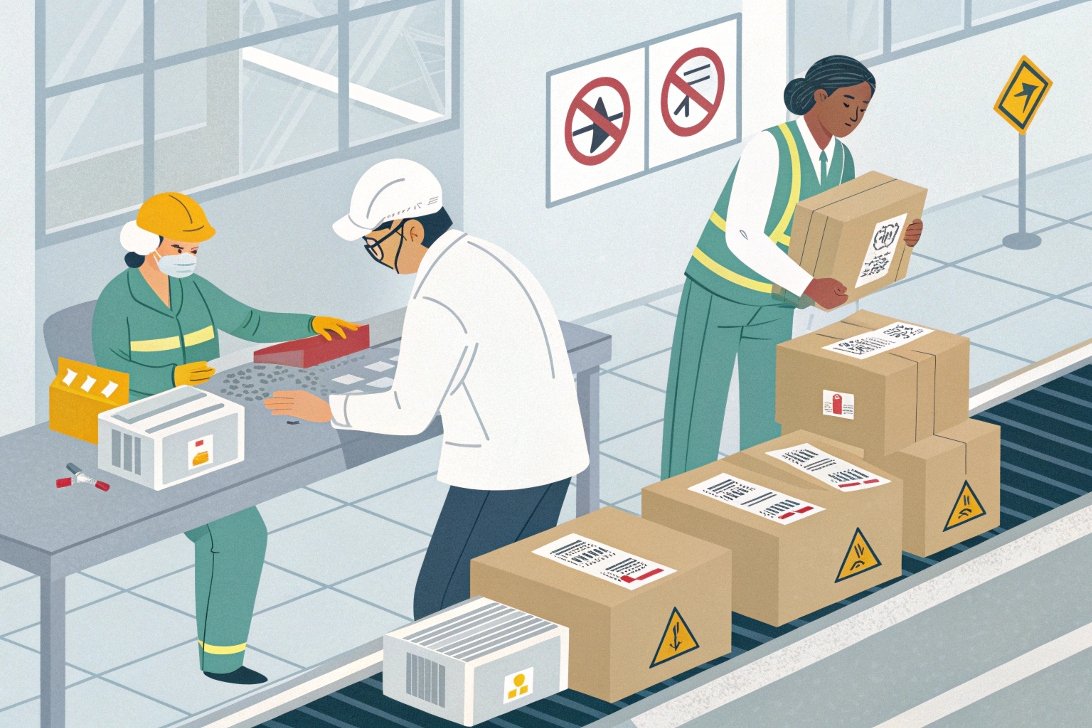
When sourcing custom parts from overseas, ensuring compliance with local regulations is crucial to avoid delays, fines, and other issues that could affect your business. I’ve experienced firsthand how failing to account for these regulations can cause headaches, but with the right strategies, you can easily navigate the complex regulatory landscape.
Ensuring compliance with local regulations when sourcing parts requires a proactive approach. From understanding key regulations to working closely with your supplier, these steps can help you stay on top of the requirements and avoid costly mistakes.
Over time, I’ve found that staying informed and collaborating with suppliers is essential for smooth and compliant sourcing. Let’s dive deeper into how you can manage local regulations1 when sourcing custom parts.
What Local Regulations Should You Be Aware of When Sourcing Custom Parts?

When sourcing custom parts, there are various local regulations that you need to keep in mind to ensure your parts meet industry and safety standards. From import/export laws2 to product safety standards3, these regulations can vary depending on the country you are sourcing from and the type of parts you are importing.
Key Local Regulations to Be Aware of
| Regulation Type | What It Covers |
|---|---|
| Import/Export Laws | Regulations that govern the movement of goods across borders, including tariffs, taxes, and customs documentation. |
| Product Safety Standards | Specific industry regulations related to the safety of the products, such as electrical, mechanical, or chemical safety standards. |
| Environmental Regulations | Laws around the disposal of waste, materials used in manufacturing, and sustainability practices. |
| Labor Laws and Working Conditions | Regulations governing the treatment of workers, minimum wage, working hours, and other labor rights. |
| Intellectual Property (IP) Laws | Regulations regarding the protection of patents, trademarks, and other intellectual property rights in custom parts design. |
| Country-Specific Certifications | Certifications specific to the country such as CE marking in Europe or UL listing in the USA, ensuring the product complies with standards. |
My Experience with Local Regulations
I remember a time when I sourced custom parts from a supplier, only to realize later that I had overlooked a crucial certification requirement for the target market. The product couldn’t be sold until it was tested and certified, causing delays and unexpected costs. Now, I always make sure to work with suppliers who are familiar with the regulations specific to both the sourcing and destination countries, ensuring smooth compliance.
How Can You Work with Your Supplier to Ensure Compliance with Regulations?

Collaboration with your supplier is essential for ensuring compliance. Since they are the ones handling the manufacturing and often the local regulations, their knowledge and expertise can help you stay compliant. By working closely together, you can ensure that all necessary certifications, documentation, and quality standards are met.
Steps to Ensure Compliance with Your Supplier
| Step | How It Helps |
|---|---|
| Communicate Early | Discuss the regulatory requirements upfront to avoid surprises later on. |
| Request Documentation | Ask suppliers for all relevant certifications and documentation that prove compliance with local regulations. |
| Involve Legal or Compliance Experts | Work with your legal or compliance team to assess regulations and ensure everything is in order. |
| Ensure Proper Labeling and Packaging | Make sure that all product labeling, packaging, and safety information comply with the destination country’s standards. |
| Conduct Regular Audits | Regularly audit the supplier’s facilities to ensure that they are compliant with local regulations. |
| Establish Clear Compliance Guidelines | Create a compliance checklist or document outlining all requirements for suppliers to follow. |
My Collaboration with Suppliers
In the past, I’ve learned that a simple conversation with the supplier about regulations can save a lot of time and money down the road. I now always make sure to involve my suppliers in the process early on, discussing each regulation that applies to the parts. This allows me to collect all necessary documents upfront and prevent any regulatory hurdles from delaying the project.
Why Is It Important to Stay Updated on Changing Regulations in the Sourcing Country?
![]()
Regulations change frequently, especially in fast-evolving industries and countries with shifting trade policies. Staying updated on these changes ensures you don’t accidentally violate new laws, which could lead to fines or delays. Keeping up with regulatory shifts is essential for maintaining compliance and a smooth sourcing process.
Reasons to Stay Updated on Changing Regulations
| Reason | How It Helps |
|---|---|
| Avoids Non-Compliance Risks | Keeping up with changes helps prevent fines, penalties, and shipment delays due to outdated knowledge of regulations. |
| Ensures Accurate Documentation | Regulations often change what documents are required for customs, safety, or certification purposes. |
| Prevents Production Delays | Changes in regulations might require different production processes or materials, and staying updated helps avoid costly delays. |
| Builds Strong Supplier Relationships | By staying informed, you can help your suppliers stay compliant too, strengthening your partnership. |
| Improves Risk Management | Knowing about new regulations helps you assess risk better, plan for potential challenges, and implement strategies to handle them. |
My Approach to Staying Updated
One of the most valuable lessons I’ve learned is the importance of staying on top of regulatory changes. At first, I relied on suppliers to notify me of updates, but over time, I realized it’s best to actively monitor regulatory websites, industry news, and consult with legal experts. This way, I can preemptively address any changes that might affect my sourcing operations.
Conclusion
Ensuring compliance with local regulations when sourcing custom parts requires a proactive and collaborative approach. By staying informed about regulations, working closely with your suppliers, and implementing a structured compliance process, you can navigate potential challenges and keep your business operations running smoothly. Staying updated on regulatory changes is vital for maintaining compliance, preventing costly delays, and ensuring the success of your sourcing strategy.
Understanding local regulations is vital for compliance and avoiding costly mistakes in sourcing parts. Explore this link for detailed insights. ↩
Import/export laws can significantly impact your sourcing strategy. Discover more about these laws to ensure smooth operations. ↩
Product safety standards are crucial for compliance and safety. Learn more to ensure your parts meet necessary regulations. ↩

